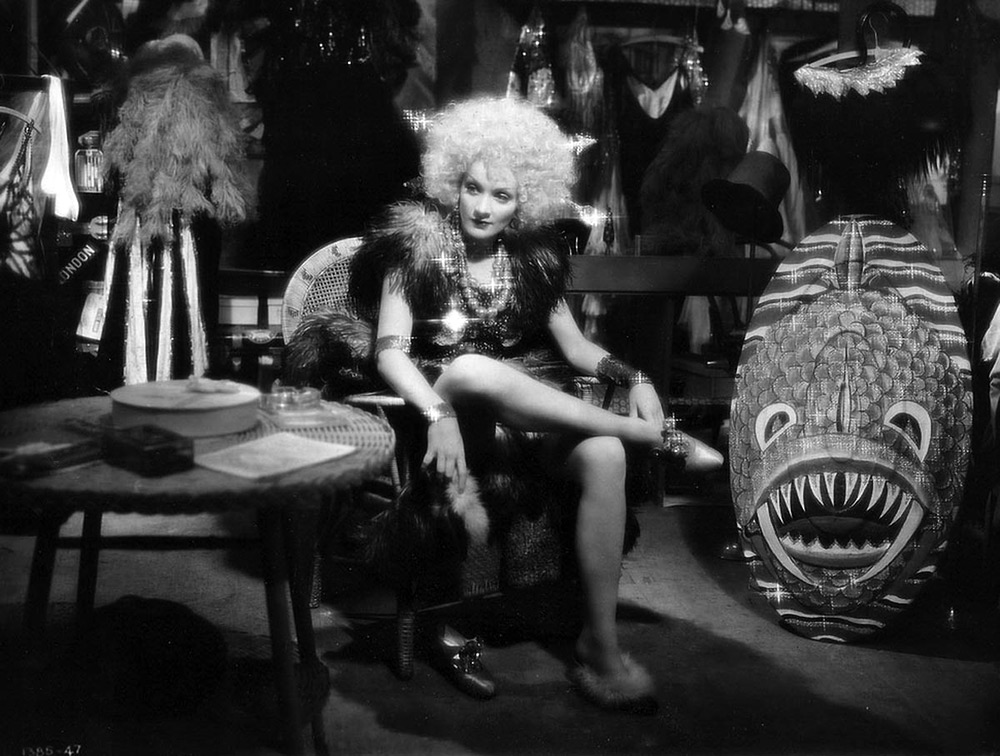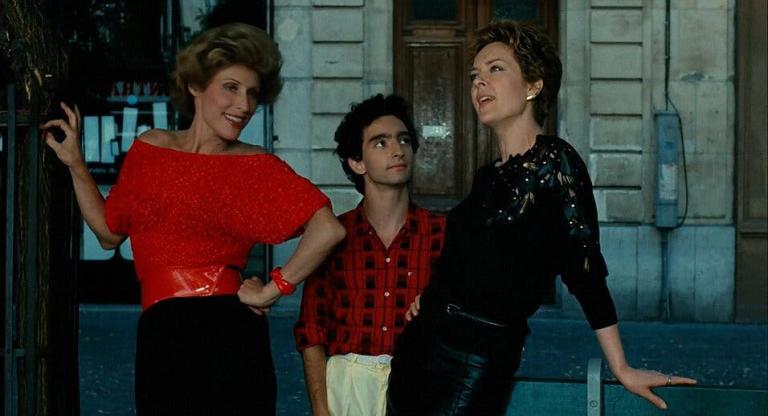There’s nothing nude, pornographic, or titillating to see between cabaret performer Helen (Marlene Dietrich) and any of her male encounters in Josef von Sternberg’s Blonde Venus (1932). But the implications—suggestive dialogue, blocking, lingering camera close-ups—are that something scandalous is happening between the sexes in-between frames. What exactly Helen gets up (or down) to with the men she meets is left to viewers to decide on. It's a choose-your-own-adventure built on the common risks of risqué Pre-Code films, with a wink-wink attitude about Helen's morals and sexuality—but one that producers and MPPDA censors still had to rework three times in order to arrive at a script they could agree to shoot. While Helen's story takes her from Germany to New York to Texas, any saucy action-cum-adventure you seek will only be found in your own imagination.
After leaving her showgirl life in Germany to marry Ned (Herbert Marshall), Helen keeps house in their meager Manhattan apartment with their five-year-old son, Johnny. But Ned, a work-from-home chemist, will die of exposure to his experiments unless treated abroad. The problem is that he needs $300 to get overseas and another $1,500 to be cured (around $42K in 2025). Helen dutifully starts performing again for money and immediately entrances politician Nick Townsend (Cary Grant), a club regular who trades expensive gifts in return for ladies’ “favors.” Viewers must imagine exactly what favors she does for him to get a check for $300 the same night that she meets him. Auf Wiedersehen, Ned!
While Townsend continues to materially provide for Helen and Johnny, Ned returns early, allegedly cured. Without batting a lash of emotion, Helen confesses that her money for Ned was obtained, not by performing, but by “a man.” Like any unreasonable guy whose life has just been saved by his wife's desperate measures, Ned promptly kicks her out. Our maybe heroic, possible anti-heroine flees with Johnny, mysteriously getting by as she evades the police around the country. When Helen offers to wash dishes because she cannot pay the 85¢ bill for Johnny's dinner, is it literal or innuendo when she's suggestively asked by the proprietor if she'll wash his dishes? You decide! When she flees from Baltimore to Norfolk to New Orleans, does she trade good ol’ fashioned “favors” for a room where she and Johnny can sleep? You decide! When she lets the eager cop in Galveston buy her a beer and then suggests they leave together, is she seducing him to derail him? You decide!
What's most fascinating about Blonde Venus is the very aspect that makes it so frustrating: we're hardly ever given enough context to form a well-supported opinion about the situations happening on screen. Blonde Venus wants women to fear being unfit mothers, untrue partners, and unlawful vagabonds, but no one can say for sure if Helen enjoys, despairs, or even cares about any of that. Although she makes her New York cabaret debut in an unfortunately unforgettable number costumed as a chained gorilla surrounded by African huntresses, Helen is and was a performer first. You can take a girl off the stage, but can you take the act out of the girl? You decide!
Blonde Venus screens on 35mm tonight, September 2, at Nitehawk Prospect Park as part of the series "Pre-Code Parade."



